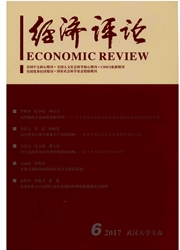

 中文摘要:
中文摘要:
农户在产生信贷需求后要想获得贷款,往往需要跨越融资的双重门槛,即农户自身“信贷恐慌”引致的主观门槛和金融机构惜贷引致的客观门槛。本文采用2013年江苏和山东两省调查数据,将农户信贷过程依次划分为产生信贷需求、跨越主观门槛和跨越客观门槛三个阶段。通过双重样本选择模型识别影响农户跨越主观门槛和客观门槛的因素。尤其是考察与比较正式和非正式社会资本的影响及其差异。研究表明.正式和非正式社会资本有助于农户跨越融资的主观和客观门槛.其中非正式社会资本在不同门槛的作用差异相对正式社会资本更大一些,不同类型社会资本对客观门槛的作用相对主观门槛要弱一些。此外。这种跨越作用随着市场化进程、正规金融发展和农户收入增长而减弱。
 英文摘要:
英文摘要:
Rural households with demanding for credit want to obtain loans, often need to cross the double thresholds of financing, i.e., the subjective threshold caused by the rural households' credit panic and the objective threshold caused by the financial institutions' credit crunch. This paper is based on the survey data of Jiangsu and Shandong provinces in 2013, and distinguishes the credit process of rural households into three stages, which are incurring credit demand, crossing subjective threshold, and crossing objective threshold. By applying double sample selection model, this paper identifies the influential factors for rural households across the subjective and objective threshold, especially investigates and compares the different influences of regular and irregular social capital. Studies have shown that regular and irregular social capita help rural households across the subjective and objective threshold of financing effectively, which irregular social capital has larger impact on different thresholds than regular capital, and different types of social capital have weaker effect on objective threshold than subjective threshold. In addition, this crossing function is weakening by the process of marketization, the development of financial regularity and the income growth of rural households.
 同期刊论文项目
同期刊论文项目
 同项目期刊论文
同项目期刊论文
 期刊信息
期刊信息
